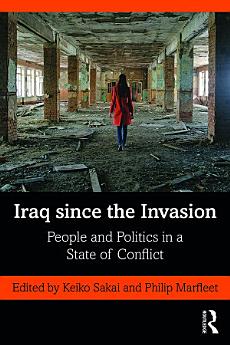Iraq since the Invasion: People and Politics in a State of Conflict
About this ebook
The book assesses the means by which American strategists imposed a new political order, generalising corruption, sectarian preference, and ethnic cleansing, and stimulating mass population movements in and from Iraq. Mobilising a multidisciplinary perspective, the book explores the rise and fall of Iraq’s confessional leaders, the emergence of a popular movement for reform, and the demands of young radicals focused upon revolutionary change. The product of years of intensive research by Iraqis and international scholars, Iraq since the Invasion considers how an initiative designed to produce “regime change” favourable to the United States and its allies brought unprecedented influence for Iran—both in Iraq and the wider Gulf region. It analyses events in Kurdistan and the impacts of change on relations between Iraq and its neighbours.
The book includes a wealth of detail on political, social, and cultural change, and on the experiences of Iraqis during long years of upheaval. It will be of value to researchers and students interested in international relations, development studies, and Middle East politics.
About the author
Keiko Sakai is a professor and dean of the Center for Relational Studies on Global Crises, Chiba University. She has research experiences in the Institute of Developing Economies and Embassy of Japan in Baghdad. She has published several books on Iraq and Middle East politics (mainly in Japanese).
Philip Marfleet is an emeritus professor in Social Sciences at the University of East London. He has worked at universities in the Middle East and the UK. His books include Refugees in a Global Era (2006), Egypt: The Moment of Change (2009), and Egypt: Contested Revolution (2016).




